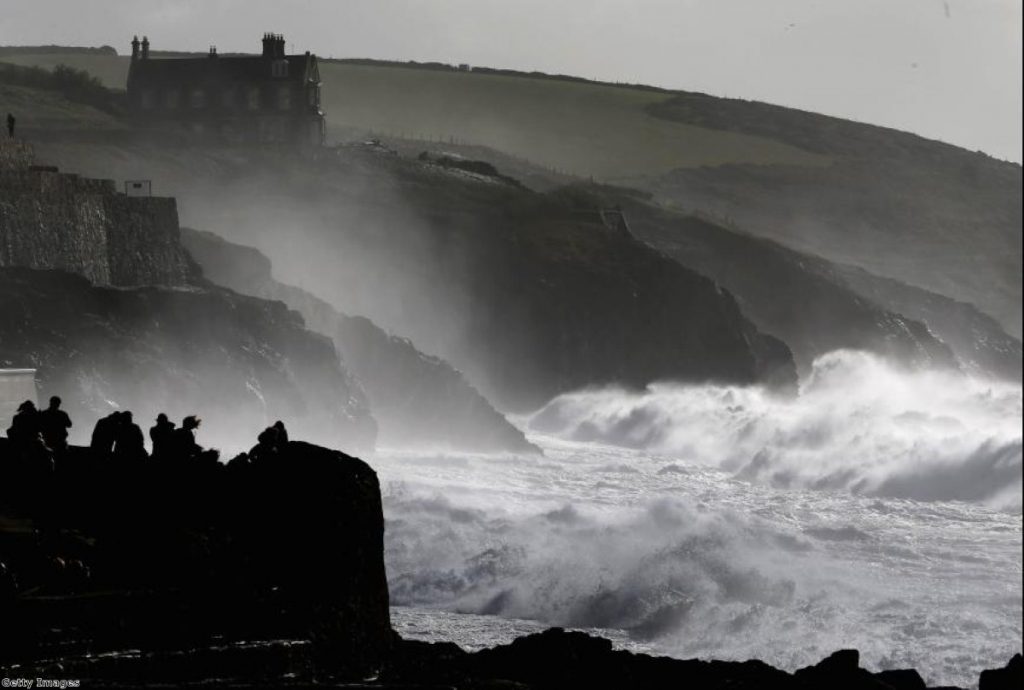The Week in Politics: Obvious storm metaphor
There were four storms rocking British politics this week. And one of them actually involved weather.
It must be what the weatherpersons live for. There is nothing they like more than a drought, or floods, or in this case hurricane-force gusts. Cast your mind back to last weekend and you'll recall exactly how worked up they were. The weatherfolk were in heaven. My wife was getting distinctly worked up.
Normally the government is able to get through these crises very easily. Just look at how they fared after the 1987 hurricane, for example, and you'll see how easy it is for weather worries to disappear into the cauldron of partisan hatred. The 2013 anticyclonic tropical storm, or whatever, was less calamitous. Even if the intervention of a crane about the Cabinet Office led to an unexpected disruption in Nick Clegg's media schedule of deputy-prime-ministerial jibber-jabber.
By then all three of the definitely non-literal tempests tracking their way through Westminster were underway.


Actually, that's not quite right. One was slowly approaching. Another had already rushed through. The third continued to rage overhead.
The approaching tornado is HS2. Despite all the fuss you've heard about it this week, the truth is this is only the warm-up act. Our politics.co.uk meteorologists are forecasting it will be tracking across the Atlantic (in a Y-shaped formation, of course) before slamming into Westminster some time next spring. Curiously, Labour politicians are especially vulnerable to the gusts this one will bring. A split between the party's frontbench (not sure about spending all that cash) and backbenches (desperate to get the economic benefits) looked dangerous as the paving bill completed its Commons stages on Thursday, but shadow transport secretary Mary Creagh did a decent job of patching over them. For now.
The passings squall is, despite all the lurid headlines, the phone-hacking scandal. That's how it seems right now, anyway. At its height this was the scandal which dominated the news for weeks on end. But now, despite the trial now ongoing at the Old Bailey, in purely political terms the damage seems to have already been done. David Cameron has not yet been hit hard by any shocking new revelation produced by the prosecution team. Until that happens, it looks like this is one typhoon of news which has already whisked its way through Britain.
That just leaves the one remaining figurative storm which might, just might, one day end up actually turning off the lights. The furore over gas and electricity prices generated a media storm which peaked this week with the appearance of energy company bosses before MPs in Westminster. I was in the room to watch it unfold. The atmosphere was horribly tense – but, astonishingly, the bosses were able to hold their nerve. Such was the ineptness of the questioning from the energy and climate change committee that the energy chiefs were actually able to lobby for a reduction in the green and social subsidies the government imposes on their customers.
Still, as prime minister's questions showed once again, energy remains a hot topic. Pun intended. David Cameron's decision to accept an offer to kick the issue into the long grass by ordering a Competition Commission inquiry mean it's possible this week might just be the peak of a this particular patch of bad political weather.
This was also the week when the privy council decided to adopt its own version of regulation for the press, by the way. Unfortunately that didn't fit into my little storm analogy, so it's got forgotten about. Who said good journalism was dead, anyway?

